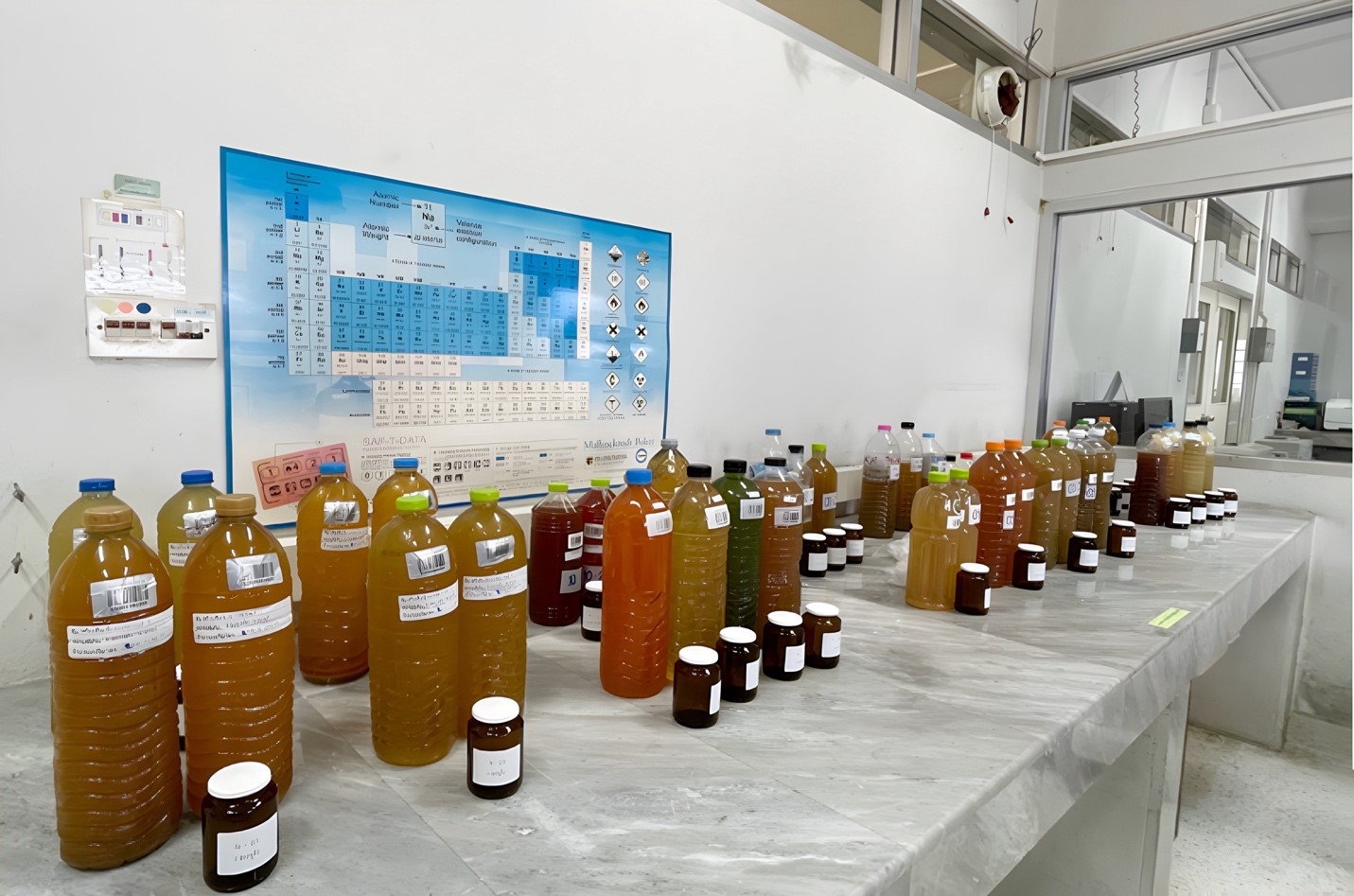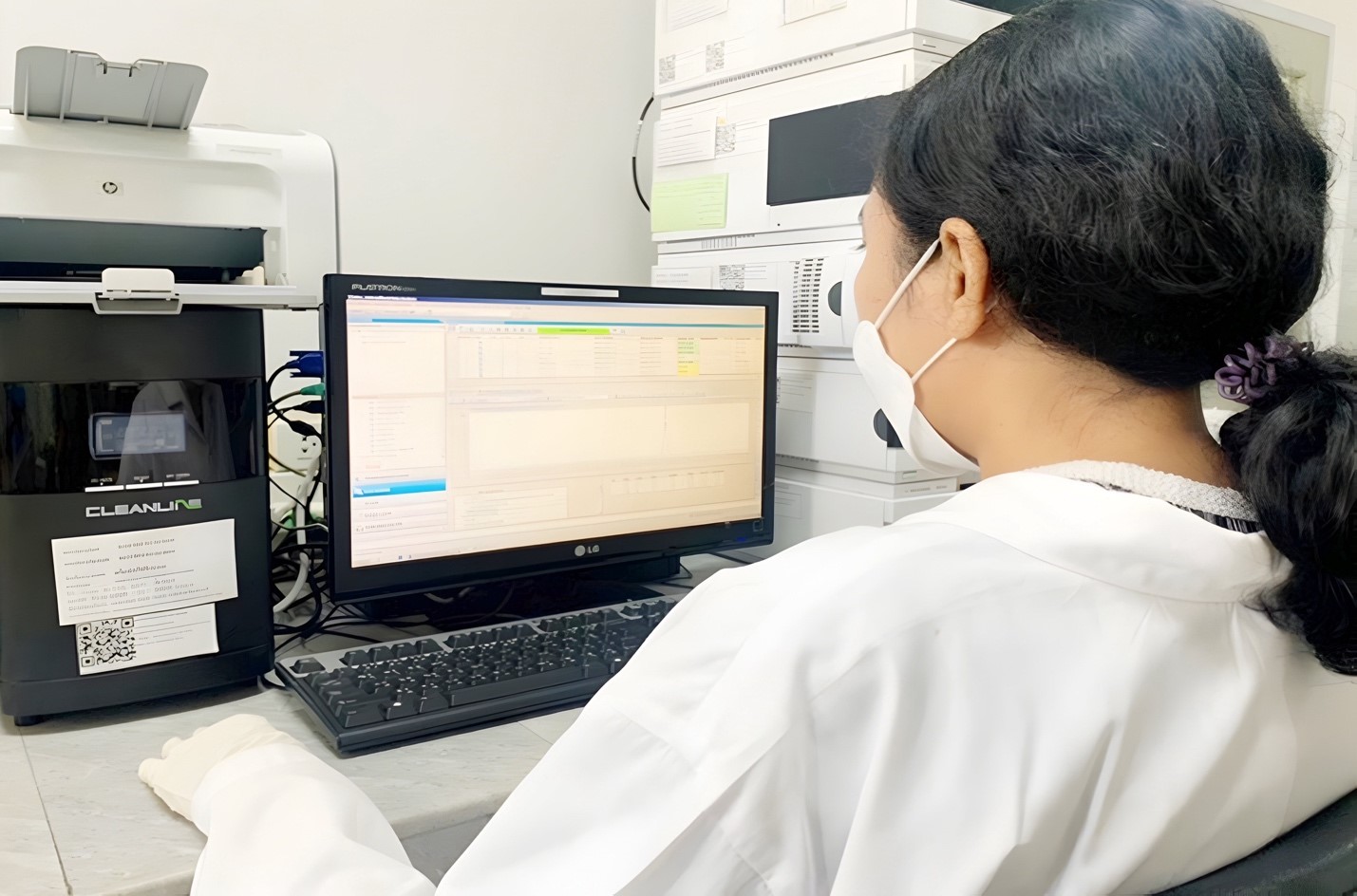
Department of Medical Science Reveals Kratom Juice Test Results: High Levels of Mitragynine and Contaminants Detected
After the Thai Parliament's decision to 'unlock kratom' from the drug list, the use of kratom has seen a notable increase. Traditionally consumed by villagers through the chewing of fresh leaves, kratom is now grown, possessed, and distributed freely. It is also used as a food ingredient. However, recently, 'kratom juice' has emerged, being sold along highways and openly online across the country, despite the lack of legal support for its sale, making its production illegal.
After the Thai Parliament's decision to 'unlock kratom' from the drug list, the use of kratom has seen a notable increase. Traditionally consumed by villagers through the chewing of fresh leaves, kratom is now grown, possessed, and distributed freely. It is also used as a food ingredient. However, recently, 'kratom juice' has emerged, being sold along highways and openly online across the country, despite the lack of legal support for its sale, making its production illegal.
The Department of Medical Sciences, Ministry of Public Health, Thailand has released the latest findings on kratom juice testing, revealing significant concerns about the presence of mitragynine, modern medicine adulteration, and microbial contamination. Since the deregulation of kratom, tests have consistently shown mitragynine in 96.3% of samples, raising alarms about potential health risks.

Key Findings:
- Mitragynine Presence: Analysis of 668 kratom juice samples since fiscal year 2022 shows 96.3% contain mitragynine. Quantitative analysis of 46 samples found mitragynine levels ranging from 1.32 to 336 mg/L, with an average of 101.2 mg/L, far exceeding the FDA's recommended maximum daily intake of 0.2 mg per day.
- Adulteration with Modern Medicine: The tests revealed that 19.6% of samples contained chlorpheniramine, 21.6% diphenhydramine (both allergy medications), and 2.9% caffeine. Notably, no samples contained codeine.
- Recent Testing Results: In March 2024, 52 samples from across Thailand showed mitragynine levels between 22.5 to 352.6 mg/L, averaging 109.5 mg/L. Additionally, 10.3% contained chlorpheniramine and 17.9% diphenhydramine. Pesticide residues were present in 23.1% of samples, including acetamiprid (19.2%) and carbendazim (3.8%).
- Microbial Contamination: Alarmingly, 80% of samples exceeded microbial contamination standards, with 79.2% containing coliforms, 59.6% with yeast and mold, and 19.2% with E. coli.

Dr. Yongyot Thammavudhim, Director-General of the Department of Medical Sciences, Ministry of Public Health, Thailand emphasized the potential health hazards. High doses of mitragynine, combined with adulterants, microbial contamination, and pesticide residues, pose significant risks. Long-term and frequent consumption could lead to toxin accumulation, potentially affecting consumer health and causing symptoms of intoxication and behavioral issues.
Dr. Yongyot advises kratom juice consumers to be cautious of the high mitragynine levels and possible contaminants. Continuous monitoring and safety evaluations are recommended to ensure consumer safety.
The Department urges consumers to be aware of the potential risks associated with kratom juice and to moderate their intake to prevent health complications.

Contact:
For more information, please contact the Department of Medical Sciences, Ministry of Public Health.
Articles in this category are written by our editorial team to keep you informed about the latest healthcare and medical tourism news.

